As Pelosi wraps up controversial Taiwan trip, Beijing vows ‘punishment’
US House Speaker Nancy Pelosi left the Chinese Taipei on Wednesday following a whirlwind visit that sent ripples across the world and prompted Beijing to hold military drills and issue hard-hitting statements against the US.
On Wednesday, Beijing vowed to “punish” those who “offend” China’s sovereignty, in a veiled reference to Washington that defended Pelosi's visit to Taiwan.
“This is a complete farce. The United States is violating China’s sovereignty under the guise of so-called ‘democracy.’ Those who offend China will be punished,” Chinese Foreign Minister Wang Yi said on the sidelines of a meeting of the Association of Southeast Asian Nations (ASEAN) in Phnom Penh, the capital city of Cambodia.
Such "Taiwan independence" secessionist forces represented by Tsai Ing-wen, riding the US coattails, have betrayed the righteousness of the great national cause, Wang said, referring to Taiwanese President Tsai Ing-wen who held talks with Pelosi on Tuesday.
"These perverse practices will not change the international consensus that there is only one China, nor will they change the historical trend that Taiwan will return to the motherland," the top Chinese diplomat said.
"Those who play with fire will not end up well, and those who violate China's sovereignty will certainly be penalized," he added.
Pelosi, 82, who is third in the line of succession to the presidency and a long-time critic of China, concluded her brief visit to Taiwan, which is the sovereign territory of China, despite repeated warnings by Beijing over the past month against such a provocative trip.
As Pelosi stepped in Taiwan on Tuesday, China demonstrated its fierce anger over the highest-level US visit to Taiwan in 25 years with a burst of military activity in the island’s surrounding waters, announcing plans for live-fire military drills.
“Joint naval and air exercises will be conducted in the northern, southwestern, and southeastern sea and airspaces” of the island, said China’s Eastern Theater Command, adding that on Thursday it would begin further live-fire military drills in zones encircling the Chinese Taipei, at some points within just 20 kilometers of the island’s shore.
The command said the drills would include “long-range live ammunition shooting” in the Taiwan Strait, a strategically-sensitive waterway that separates the self-ruled Chinese Taipei from mainland China and straddles vital shipping lanes.
China also summoned the US ambassador in Beijing over Pelosi’s visit, notifying the envoy about the country’s strong protest.
Under the “One China” policy, nearly all countries across the globe recognize Beijing’s sovereignty over the Chinese Taipei, including the US, which has no formal diplomatic ties with the territory, but continues to court the secessionist government in Taipei, support its anti-China stance and supply it with massive amounts of armaments.
China has time and again said that Taiwan - viewed by Beijing as a breakaway province - must be reunified with the mainland, even by force.
Analysts say China’s burst of military maneuvers around the Chinese Taipei since early this week seemed designed to project strength rather than serve as a precursor to an invasion against the self-ruled island.
Beijing itself insisted the drills were both necessary and just.
“The Chinese military’s conducting of military exercises in the sea near China’s Taiwan are a necessary and just measure to resolutely protect national sovereignty,” said Foreign Ministry spokeswoman Hua Chunying at a regular press conference on Wednesday. “In the current struggle surrounding Pelosi's Taiwan visit, the United States are the provocateurs, China is the victim. The joint provocation by the US and Taiwan came first, China's just defense came after.”
China restricts trade with Chinese Taipei amid tensions
On Wednesday, Chinese commerce and customs authorities announced that the country had halted exports of sand, a key material used in construction, and imports of Taiwanese citrus fruit and some types of fish.
According to China’s General Administration of Customs, the food imports were halted due to the presence of pesticide and the coronavirus in some shipments.
Meanwhile, the Chinese Ministry of Commerce announced it had suspended sand exports in line with unspecified legal provisions.
Separately, China’s Taiwan Affairs Office said it would prohibit mainland Chinese companies and individuals from financial dealings with two Taiwanese foundations, the Taiwan Foundation for Democracy and the Taiwan International Cooperation and Development Fund.
On Monday, China’s customs agency said in a notice it had blacklisted over 100 Taiwanese food brands for failing to renew their export registration.
China is Chinese Taipei’s largest trade partner, with the island’s exports to mainland China and Hong Kong reaching $188.9 billion last year.
US naval forces have been conducting such maneuvers near Chinese waters on an almost monthly basis, irking Beijing, which considers the sailings as a sign of support for the Chinese Taipei.
The administration of US President Joe Biden says it does not support independence for Taiwan or changes to the status quo, but Washington says Pelosi has the right to visit the island.
According to an economist, Pelosi’s visit ramped up US-China tensions and risked pushing the countries further apart, likening the trip to “pouring salt in an open wound for China.”
“We’re on a trajectory of escalating conflict and this will certainly make matters worse. It plays well to local politics in the United States and in Taiwan, but it does not play well to geostrategic forces that are pushing these two nations apart,” said Stephen Roach, a Yale University senior fellow and former Federal Reserve economist.
Speaking with CNBC’s “Street Signs Asia” on Wednesday, he said, “The leadership in both the US and China to address this conflict is compromised by this basically pouring salt in an open wound for China.”
Biden has by and large continued the policies of his predecessor, former President Donald Trump, vis-à-vis China. But he has sought to stabilize ties with Beijing through regular conversations with his counterpart Xi Jinping.
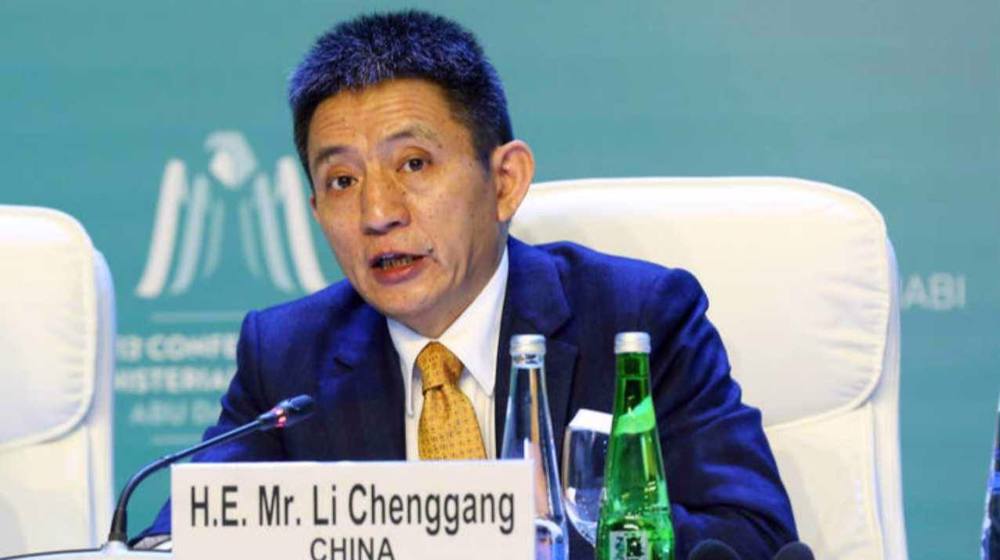
China condemns ‘unilateral and arbitrary’ US tariffs
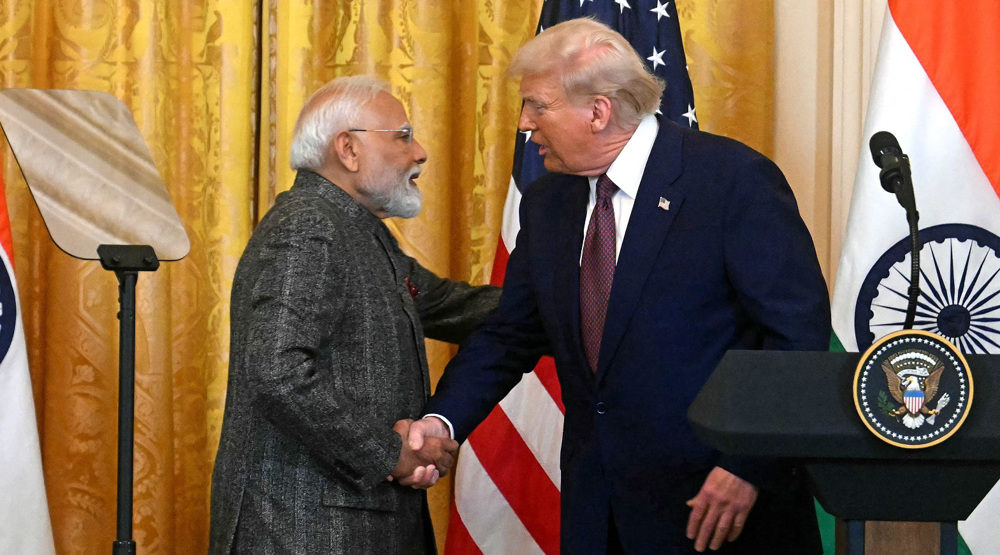
China warns US, India after Trump surge in arms sales to New Delhi
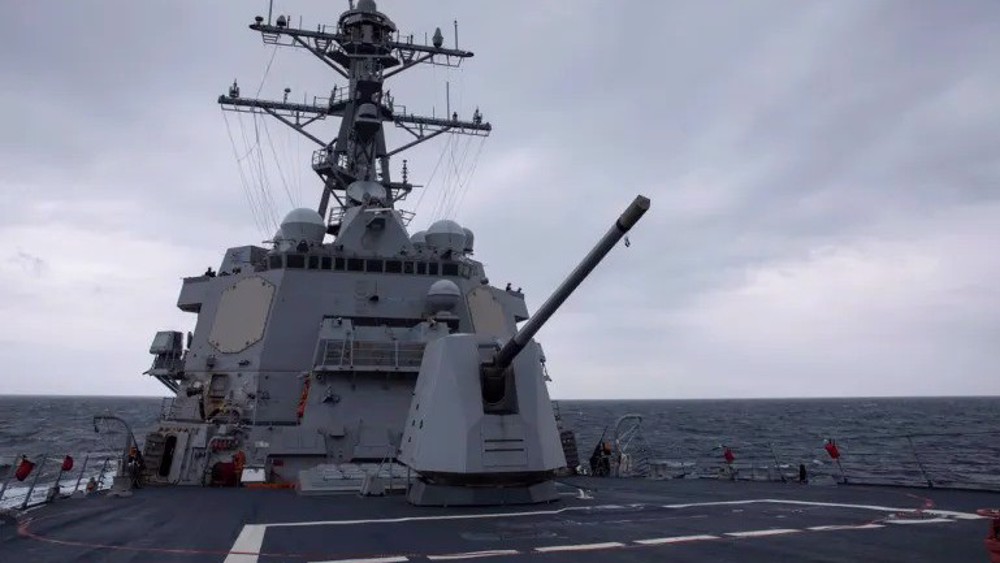
US makes debut passage through Taiwan Strait under Trump's new administration
Australian senator smeared by anti-Iran groups for saying Iranian women 'have a voice'
Hezbollah's display of power proved resistance cannot be eliminated: Iran parl. speaker
Israel escalates West Bank raids as official says regime seeking to complete Gaza genocide
Palestinian man dies in Israeli prison as Foreign Ministry urges intl. probe into regime’s crimes
Putin says not opposed to Europeans’ involvement in Ukraine talks
VIDEO | Iranian Kurdish protesters demand European action against PKK, PJAK terror
VIDEO | Israel expands offensive in northern West Bank, deploys tanks to Jenin
VIDEO | Spaniards fill streets of Cádiz in solidarity with Palestine


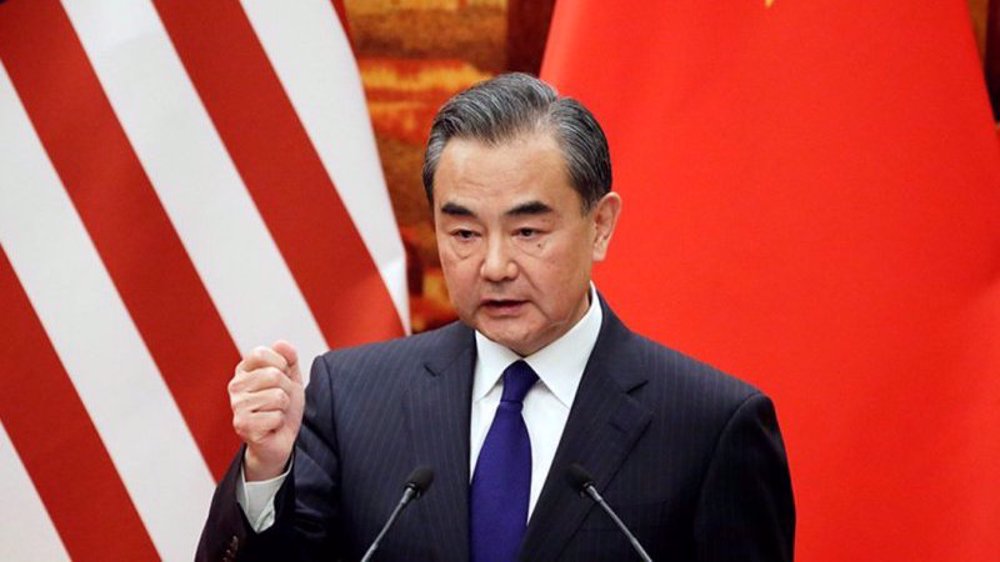



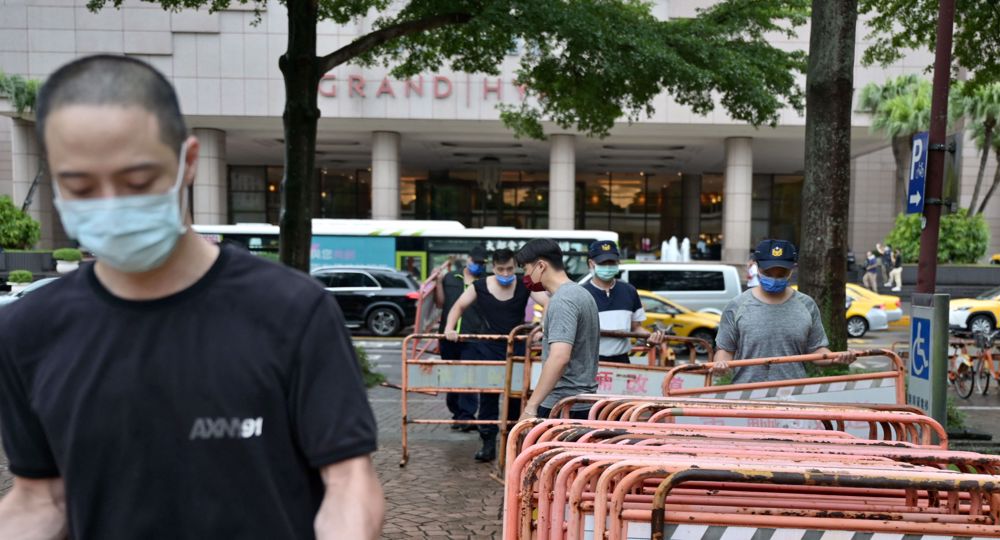
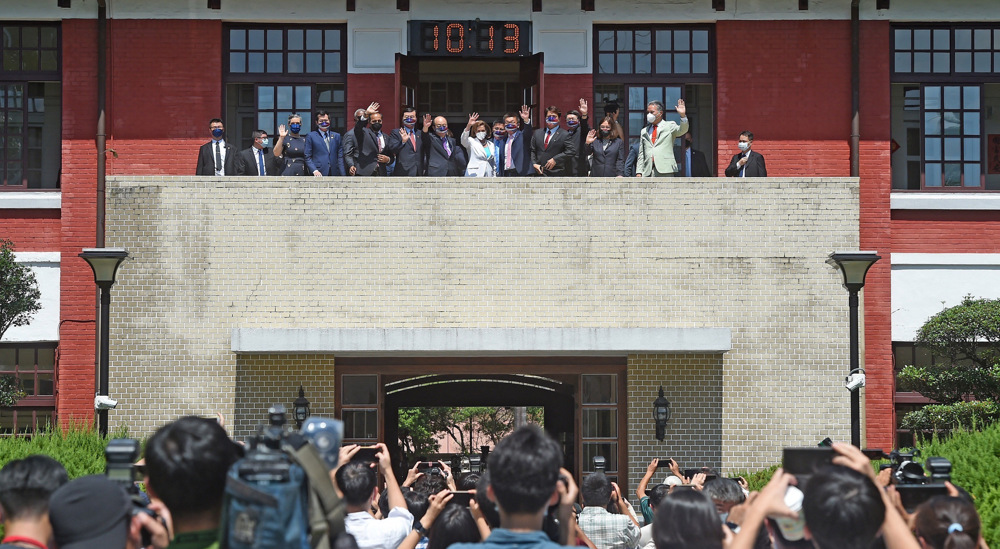
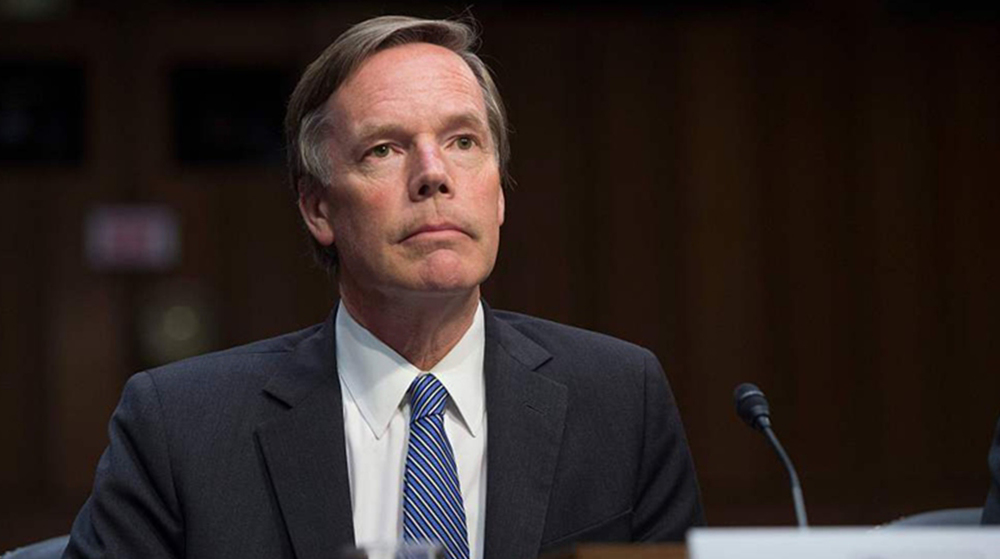
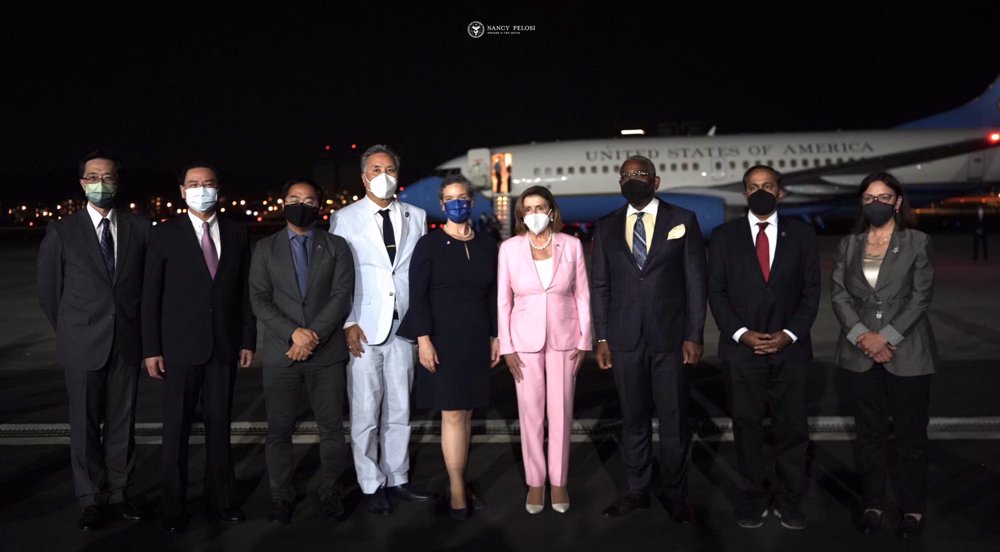

 This makes it easy to access the Press TV website
This makes it easy to access the Press TV website